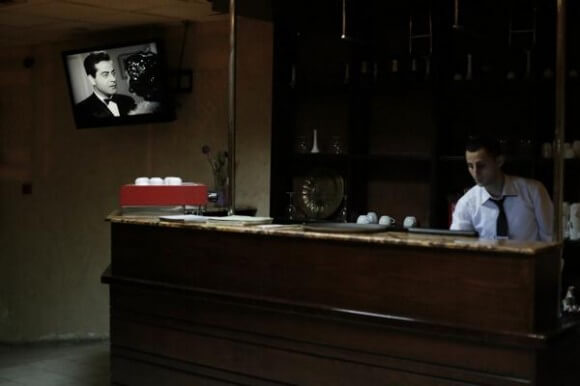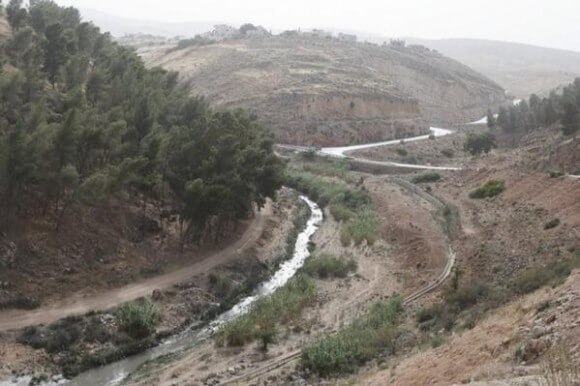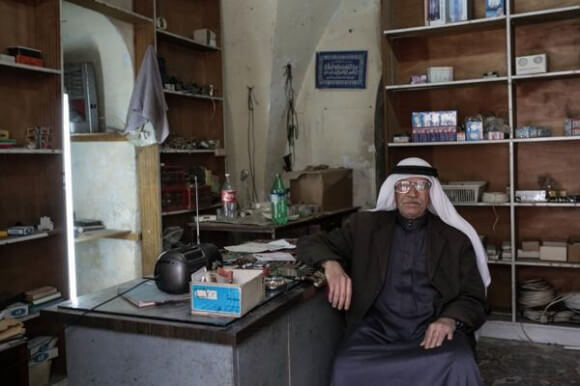Teju Cole, the Nigerian-American novelist, has published a diary of his trip to Israel and Palestine at the Financial Times. It contains this hugely helpful statement, an understanding that I believe any clearthinking person visiting the countries must reach:
How does one write about this place? Every sentence is open to dispute. Every place name objected to by someone… Whatever is written is examined not only for what it includes but for what it leaves out: have we acknowledged the horror of the Holocaust? The perfidy of the Palestinian Authority? The callousness of Hamas? Under these conditions, the dispossessed –I will leave aside all caveats and plainly state that the Palestinians are the dispossessed – have to spend their entire lives negotiating what should not be matters for negotiation at all: freedom of movement, the right to self-determination, equal protection under the law.
Excellent. Meantime, I’ve been following Cole’s twitter feed, which is more condensed, poetic and graphic than his diary piece. Like this reflection:
The sad privilege of traveling in Palestine, knowing that people we met in one place are kept by vicious law from going with us to the next.
Here’s a poetic tweet about ethnic cleansing:
In bright bright sunlight, the darkness echoing. In emptied streets, crowds of ghosts.
Here’s a picture from Nablus. Reminds me of John Ging telling our Gaza delegation that the Palestinians are a deeply civilized people.

“The road to Nablus, Occupied Palestine.”

Cole reports: “The destroyed Maronite Christian village of Kafr bir’im is now a national park. The people are not allowed to return.”

More on ethnic cleansing. “Maronite boys in Galilee. This community was expelled and their village destroyed by the Israeli Air Force in 1953.”

And this last image is incredible. “Defying Israeli orders, Abu Nader opens his almost empty shop on an abandoned street near a Hebron checkpoint daily.”



It’s almost like losing wars has consequences. Reminds me of this:
https://en.wikipedia.org/wiki/Expulsion_of_Germans_after_World_War_II
Where is Zack S to suggest that Teju Cole is on the Pallywood payroll and these photos are all doctored and the work of Jew haters and anti semites.
For Zack s and fellow zios , black is white and white is black.Down is up and up is down.
Israel and it,s IDF heroes always tell the truth???. Right Zack.
Their God requires it of the new master race and light unto the nations.
Teju is doing the harrowing work of documenting the cruel, illegal, and undeserved dispossession of a wonderful people.
Through his own clear eyes and voice, he is giving all of us stark truth.
“In bright bright sunlight, the darkness echoing. In emptied streets, crowds of ghosts.”
And millions of those ‘ghosts’ are very alive…. a tragedy.
That hotel looks so inviting. I can image breakfast with ahwa (dayman) and labneh.
A great piece in the FT. The bots and their brittle ideology
“Whatever is written is examined not only for what it includes but for what it leaves out: have we acknowledged the horror of the Holocaust? The perfidy of the Palestinian Authority? The callousness of Hamas?”
And the banal cruelty
“Dr Tawfiq Nasser, who runs the hospital, tells us about a man from Gaza who had the wrong ID and thus for eight years couldn’t see his son, whose ID was similarly restrictive. The man was diagnosed with cancer and finally got a permit to enter Jerusalem. He went to see his son in the West Bank, spent three weeks with him, came back to the hospital for one week of chemotherapy, and returned to Gaza and died”
And this is the fulfillment of Scripture, of course.